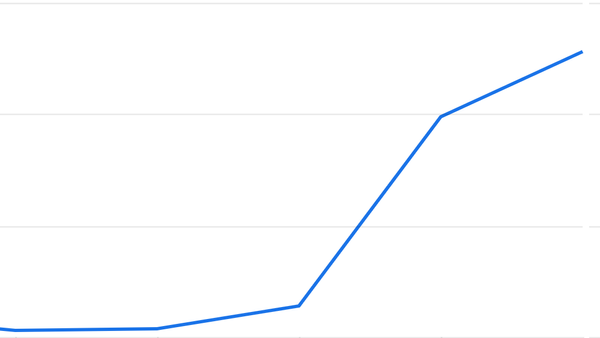Why Marketers Are Afraid of Kindness
A personal reflection on why being a person isn't "professional".
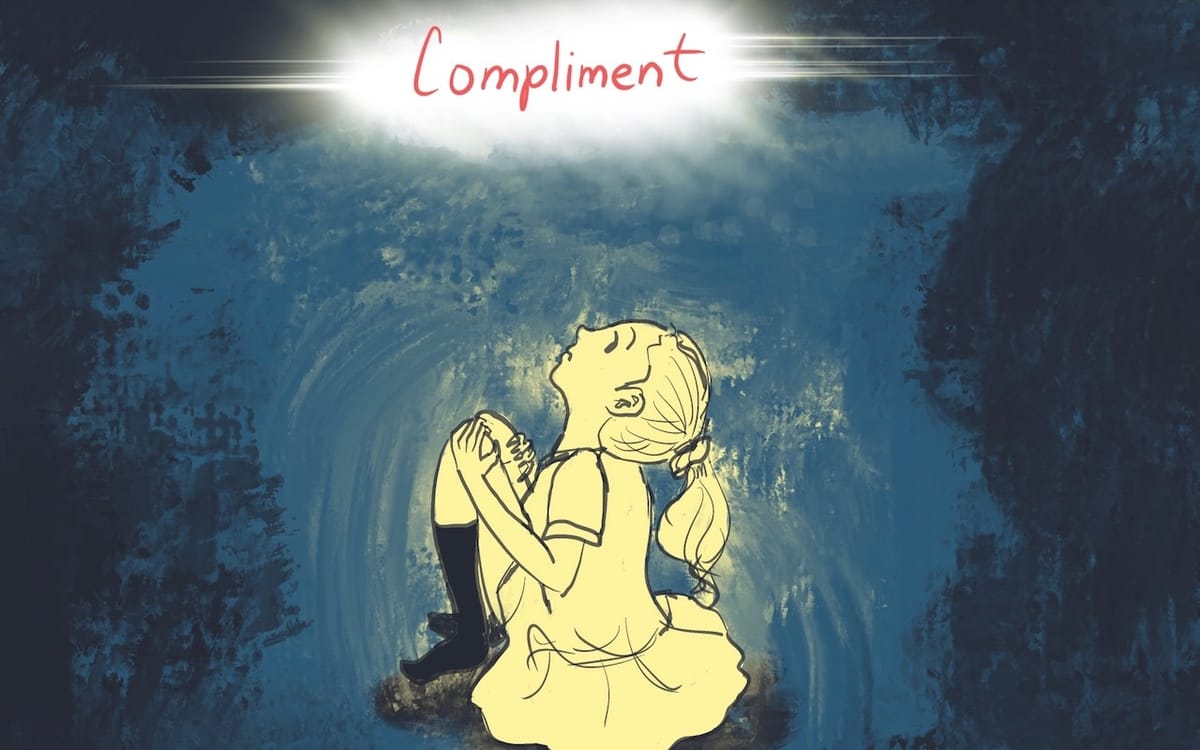
A particular thought has been gnawing at me for months now, starting out as a mere flicker in the back of my mind and growing louder and louder every single week. Today, I have finally figured out what it is that I’ve been thinking and why it’s important.
I want to talk to you about why so many marketers (and other professionals) are deeply afraid of kindness, sincerity, and emotion.
Sincerity
Our Unreasonable Expectations of Professionalism
Last week, my husband and I were driving to the Syracuse airport to pick up a friend of mine. That drive is around an hour long, and we were planning to listen through a podcast episode on which I was a featured guest. Once we got through the first five minutes of me desperately covering my ears to avoid the pain of listening to my own voice, we both sat in silence and listened for only a couple more sentences until he hit pause and turned to ask me a question.
“How does it feel to realize that you’ve already come so far in your career?”
That question has been on my mind a lot the last 3 months. I started my consulting business in December of 2021, and as that one year anniversary crept up followed by the holidays, I spent many hours reflecting back on everything that happened and how different my life has been.
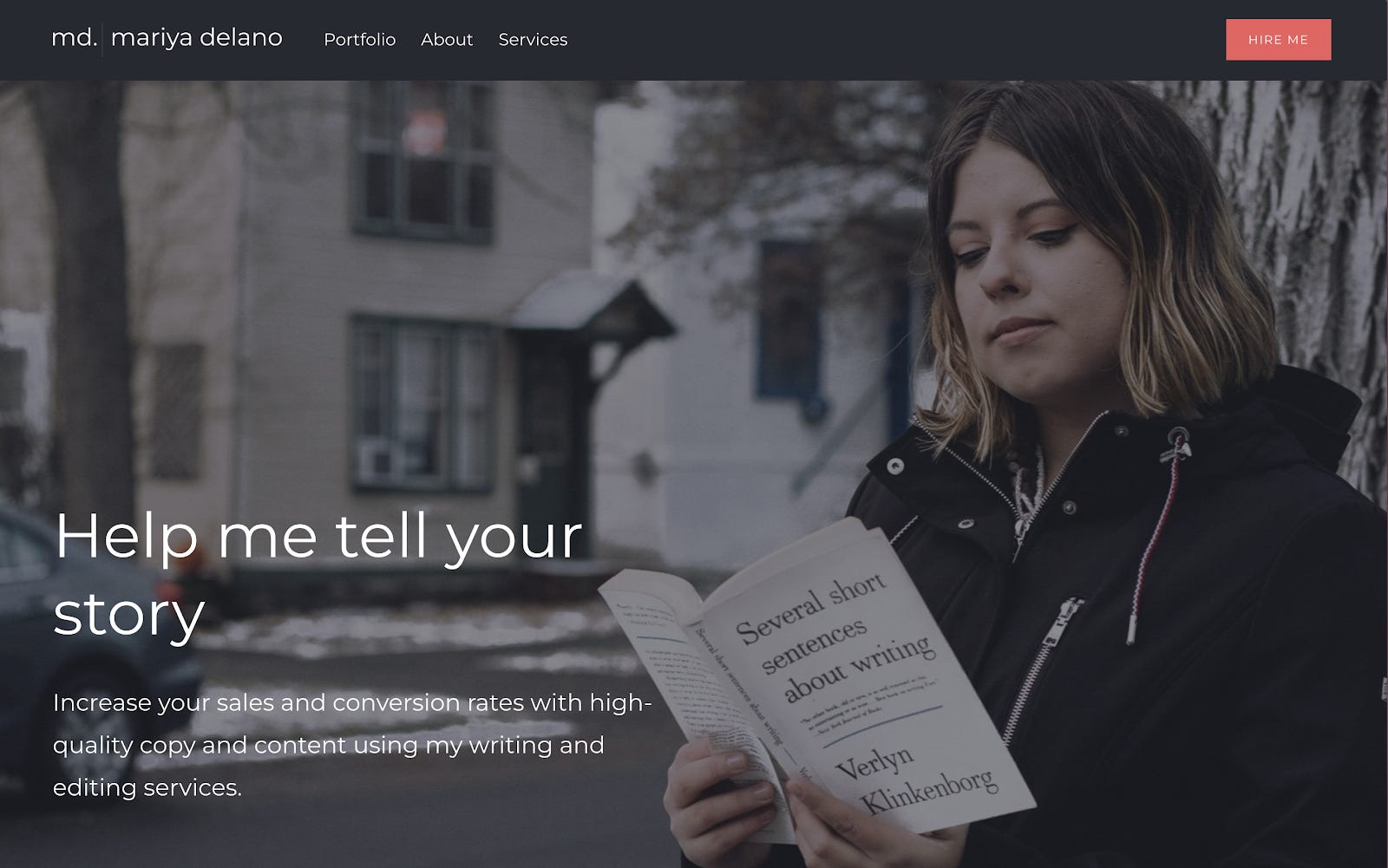
Everything has been going shockingly well. I have been extremely lucky. Most businesses don’t do this well only a year in, especially when bootstrapped by a single person who is financially supporting a family of 5 without any prior savings. It’s a fair question: how did I get this far? In many ways, this success can be attributed to a particular combination of coincidences, my propensity for getting obsessed with work, previous skills, and the help of wonderfully kind people.
But as my husband asked me that question and I stared out onto the snowy highway in front of us, I thought of another inquiry that people tend to ask me.
When I get on calls with other marketers for casual coffee chats, the same question inevitably pops up: “are you always this sincere?”.
I’ve heard multiple version of their follow-up statement by now:
- You’re really refreshing to talk to
- Wow, you’re really honest
- Huh, nobody’s ever talked to me so openly before
- You aren’t afraid of saying what you think, are you?
Each time this exchange plays out, I tend to shrug and dismiss it as a pleasant exaggeration before moving on to whatever we were talking about.
But as my husband and I were talking about all the wonderfully crazy things that have happened to me in the past year, he brought up the same thing.
“People like you because you are so honest. Most professional interactions aren’t like that.”
The more I’ve reflected on how all of my friends and family talk about their work, the more I’ve realized that he was on to something.
For many people, going to work means putting on a fake “professional” persona and suppressing their authentic self. The office is not a place to show your eccentricities, strong opinions, or share your feelings. You are lending out your time for money, and you need to fit into the peg of “professionalism” if you want to keep receiving a paycheck at the end of the day.
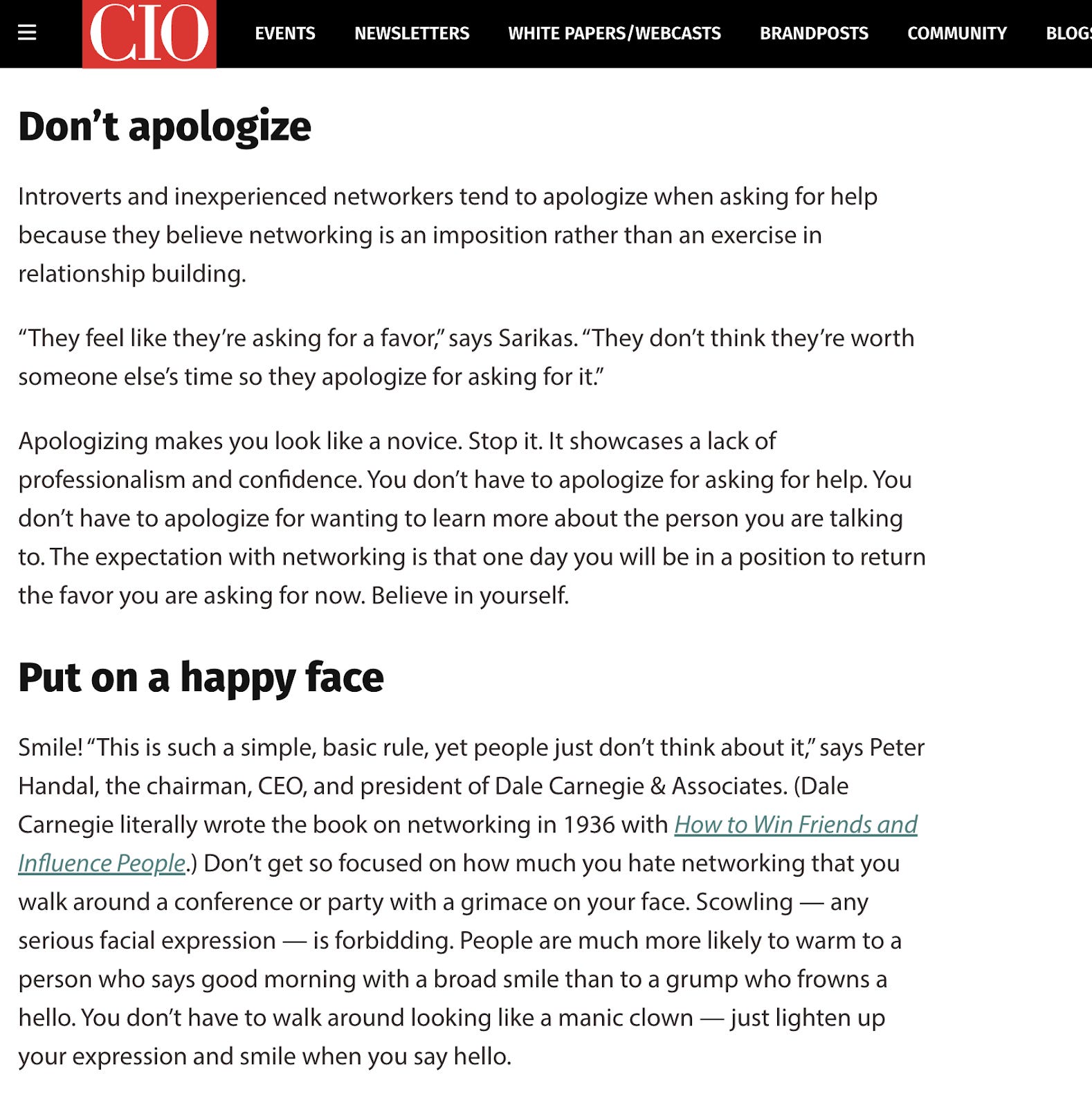
But I’ve never been good at acting “professional”.
In fact, I’m terrible at it. From my very first internships in high school to my full-time job out of college and now to my current business…. I can’t put on a professional persona. Whether it’s a job interview, a sales pitch, or a client meeting – my excitement for some nerdy aspect of our work or my over-the-top enthusiasm for meeting new people will make itself known.
I am the person that loudly squeals in meetings and asks 100 questions about some particular phrase that caught my attention, before launching on an extended tangent about funky socks or some new feature of my favorite software, all while taking pages and pages of notes on the nuances of the work that we are doing. You might find me annoying (and I’d agree with you), but the more open I’ve become with my eccentricities, the more people seem drawn to me.
I’ve learned to foster those types of connections a long time ago.
Why I Disarm People with Sincerity
In middle school, I developed a method for getting people to open up. Whenever I wanted to make a new friend, I’d find a time for us to talk one-on-one, and then I’d casually announce some deeply personal fact about myself. That fact could have been a deep-seated insecurity, some random tidbit of family trauma, a crush on someone in our class, etc. The details weren’t important: my fact simply had to be something that most people would never share with a stranger.
My description of this approach may sound manipulative, but I was 12 years old and not fully conscious of what I was doing. All I knew was that people wouldn’t trust me unless I first showed that I trusted them. And my instant vulnerability-dumping would instantly show me if the other person could become a friend.
Because when I would surprise someone in this way, the conversation would only go in one of two ways:
- They would get uncomfortable and switch the topic back to safe small talk.
- They would earnestly respond to whatever I shared and share back some personal fact about themselves.
Those who embraced my transparency would often become good friends. Because I immediately dropped the pretense of acting like a sanitized version of myself, the right people also felt liberated from keeping up a fake appearance. When the chemistry was right, a deep and close friendship would blossom within weeks of that first interaction.
Now, I’ve learned how to create the same level of trust with more grace.
I no longer trauma-dump on innocent strangers or shock anyone into a deep conversation despite their discomfort. But to this day, if you get on a call with me for the first time, I will probably share some personal fact about myself that you wouldn’t expect. Because if you are my kind of person, then you will also crave deep conversations. And my invitation to share will feel like a relief from keeping a fake smile plastered on your face in the pursuit of ephemeral professionalism.
Everyone wins when we feel safe enough to act like ourselves.
Kindness is Scary
But making myself seem like some wise expert on sincerity would be a lie.
Like many marketers and public-facing professionals, I am deeply insecure. All of the personal branding gurus we see on LinkedIn preach to us about never showing weakness, playing hard to get, and only talking about our strengths. After all, how can you ever position yourself as an expert in your field if you are doubting your skills and experience? Why would anyone listen to you if you’re doubting your own advice?

And worse yet: why would anybody ever buy the products and services that we’re marketing if they find out that we are frauds?
Impostor Syndrome: Every Marketer’s Professional Affliction
Whenever the topic of impostor syndrome comes up, every marketer seems to have a story to share.
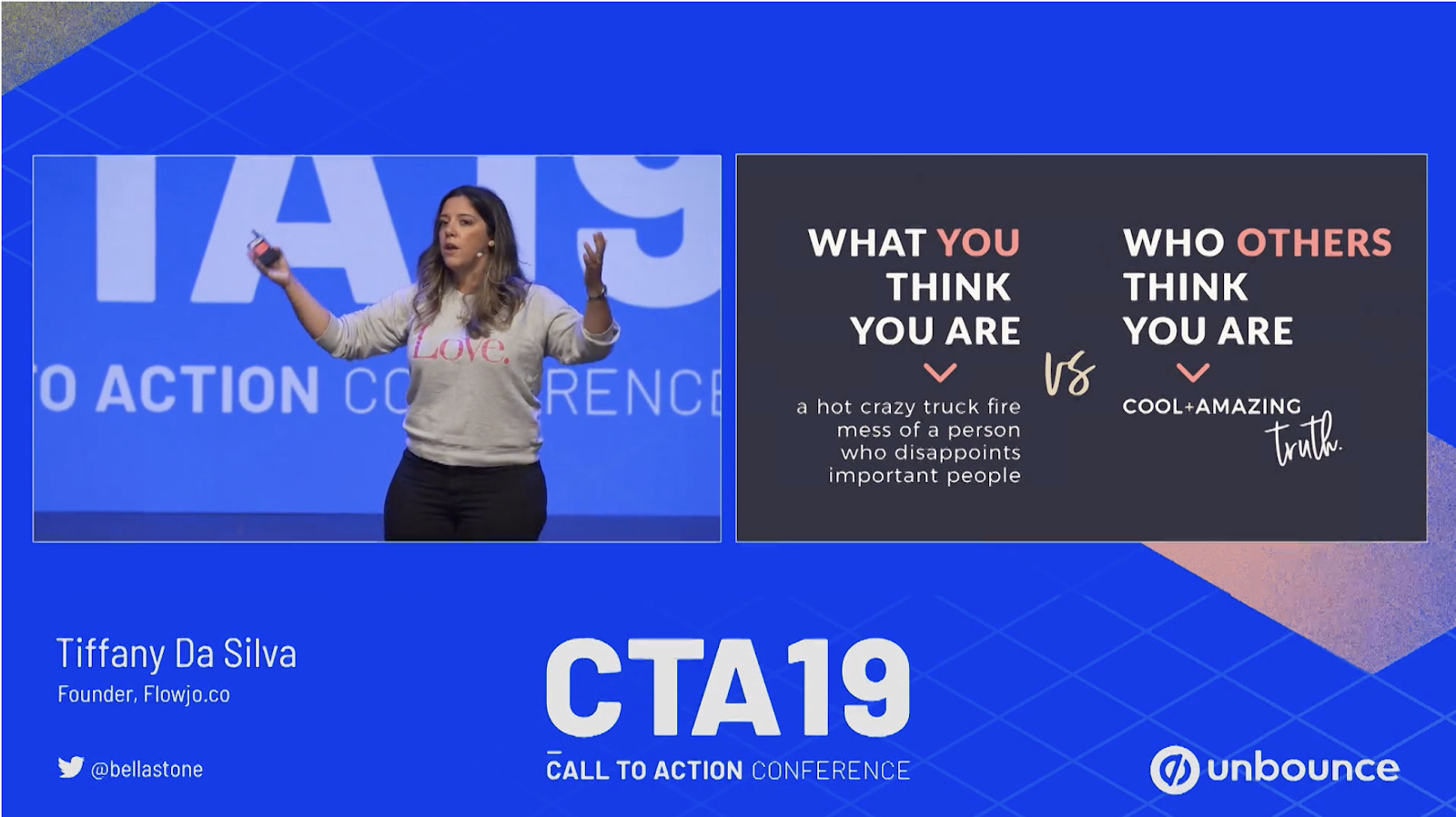
A friend of mine, Tiffany DaSilva, likes to say that if a marketer hasn’t experienced impostor syndrome, they will eventually. And Tiffany knows what she’s talking about, given that she is constantly speaking at conferences on this exact topic.
Why is our profession so prone to self-doubt?
I think it’s a combination of three factors:
- The professional world as a whole encourages “faking it” and hiding our failures.
- Marketers are, by the nature of our work, more attuned to how we present ourselves and the organizations that we’re promoting.
- Marketing seems to attract a certain personality type: many of us are hyper-aware of other people’s perceptions, prone to overanalyzing every interaction, and deeply care about pleasing others.
It doesn’t seem like a coincidence that so many of us have experienced some type of bullying or intense rejection earlier in our lives. After all, marketing is not all too different from theater or fiction writing.
When we present a particular company or product, we need to take on the character of that brand. We are no longer ourselves, and our work often appears without our names attached to it, bylines attributed only to “Company” or “Team”.
Compliments Can Become a Burden
This is a message that a mutual friend sent to my husband the other day, while talking about me:
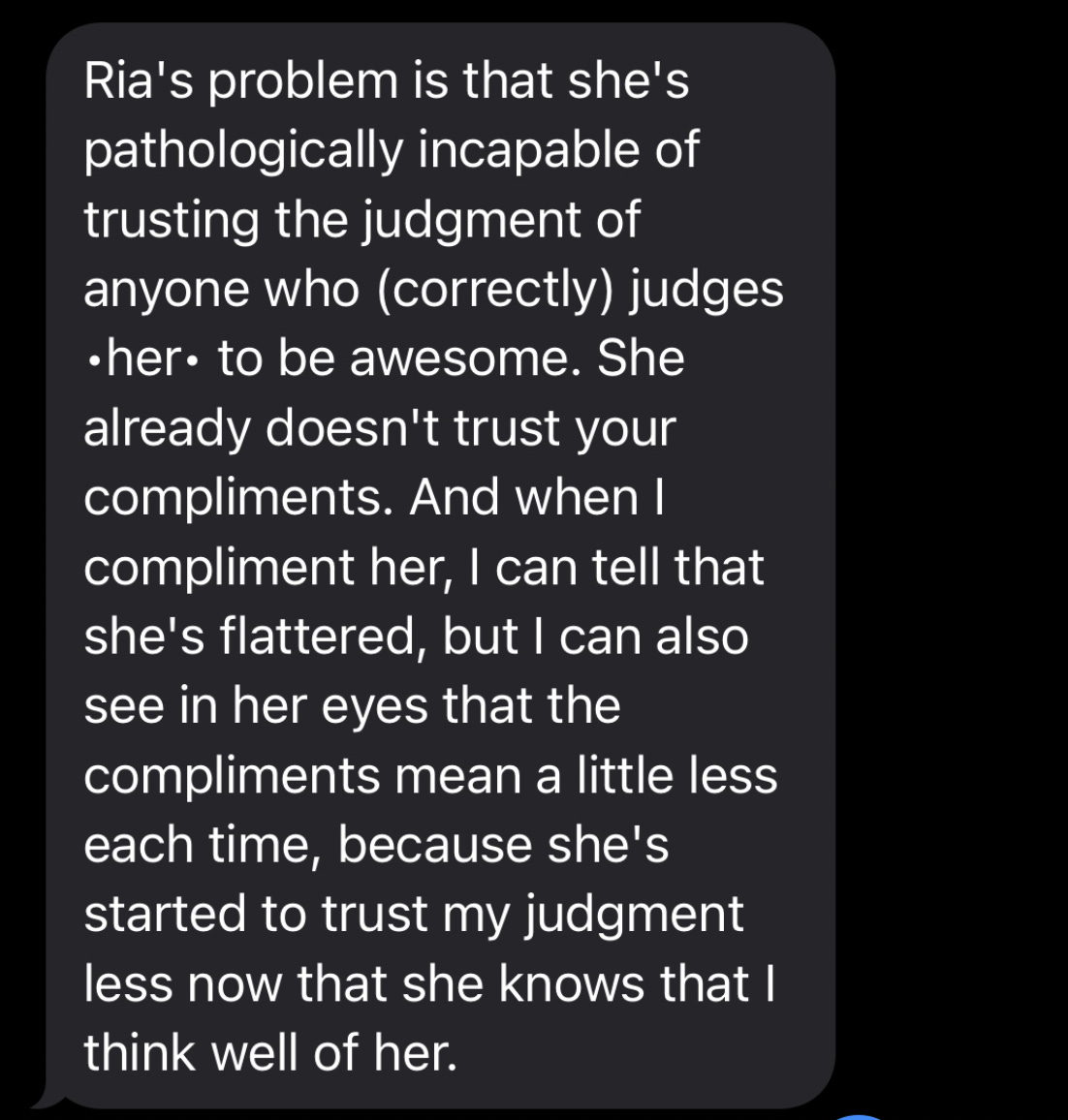
Reading that message hurt. I don’t want the people I love to see that when they compliment me, I question their judgment. But that friend is right. I do, in fact, doubt people when they compliment me.
Just yesterday, I was on a call with someone that I deeply respect and admire. And yet, any time they said anything even remotely nice about me, my thoughts would immediately gloss over the compliment. Instead, I’d fixate on the next topic of conversation. Nice things simply did not compute.
I should have been treasuring every single word said, trying to burn it into my memory because there are very few people in this world whose opinion I treasure as much as that person’s. But even out of their mouth, any compliment towards me had to be flattery, fake politeness, or a mistake.
I deeply, sincerely believe that I do not deserve nice things. In my heart, I think that whenever someone is kind to me, they either want something or they are simply mistaken. Just give it enough time, and they will realize that they were wrong about me. Because sooner or later, I will disappoint everyone I meet.
Fear of Kindness
Being snarky, contrarian, or sarcastic is easy.
Coating all of your interactions in a layer of detached aloofness serves as an armor for your soul. If the only emotions you publicly display are anger, frustration, and annoyance - nobody will see how afraid you truly feel.
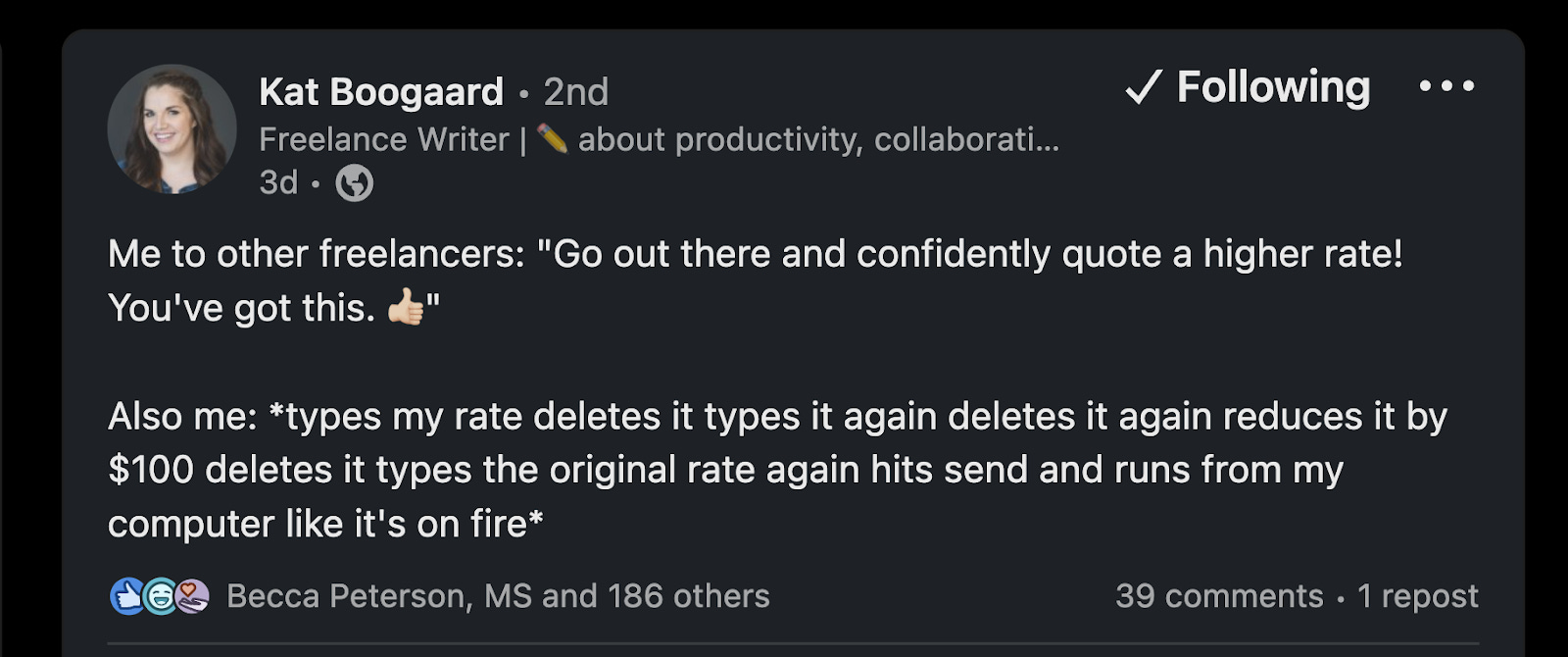
Why do we still hold on to this expectation of toxic masculinity in our professional lives, even as so many of us have shed other aspects of patriarchal oppression?
The snarky marketer roasting other people’s campaigns or criticizing somebody else’s approach to building out their campaigns is operating under the same framework as a “Mad Men” era boss.
Your life might be terrible, but you can only show emotion from the pedestal of your own power and authority. Sure, everyone in your office might know that you and your wife no longer sleep in the same bed. But nobody will mention it, and if they do – you can shut them up by yelling about their terrible performance.
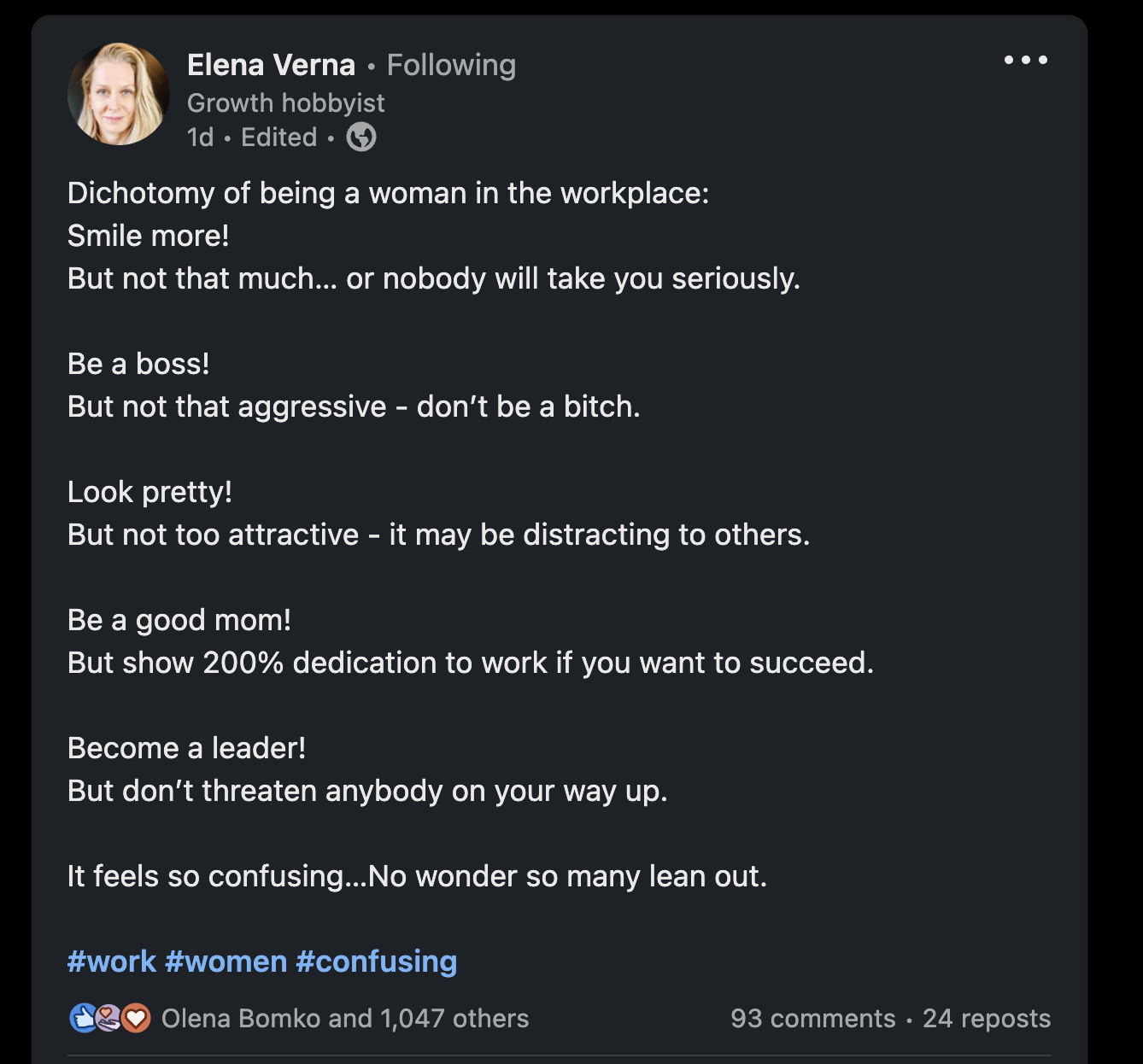
We’ve gotten much better in eradicating workplace harassment or toxic expectations in romantic relationships. After all, as a woman in the 60s I wouldn’t have been able to casually start a business, put myself out there on social media, and get to do most of the work that I now love.
But we need to eradicate the toxic expectations that we have for ourselves. We are human. We are weak. We are afraid. And we have the capacity to love and care so deeply about our work, our interests, and the people around us.
I want to see more posts like SparkToro’s hiring announcement for Amanda Natividad, with the company’s CEO Rand Fishkin sharing one of the most vulnerable pieces of writing that I’ve ever come across:
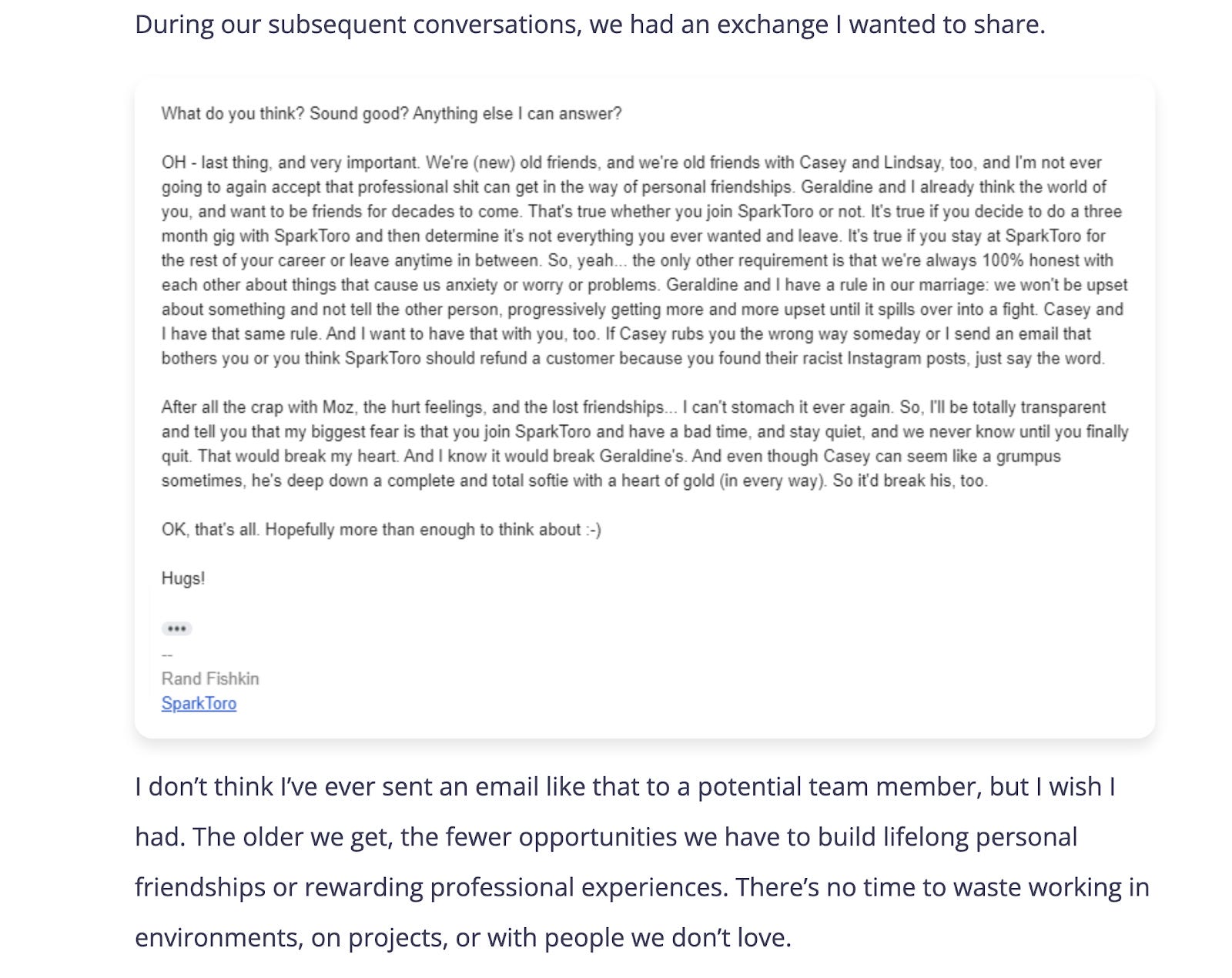
I want to hear about people’s anxieties and pain. I want to know when somebody is feeling uncertain or afraid. I want to share when somebody’s made a mark on me or inspired me to do something new. I want to tell people that I love them. I want to ask for help without fearing that my weakness will be perceived as a disappointment.
I want to be a human because my humanity is what makes me a good marketer in the first place. And I hope that you want the same for yourself too.
Breaking the Cycle: Show People That You Care
I implore you to break the cycle.
Stop being so afraid of showing your emotions in your work. If you care about something, say it. If you are feeling down, don’t hide it. And if somebody has made you smile or feel better about yourself… tell them.
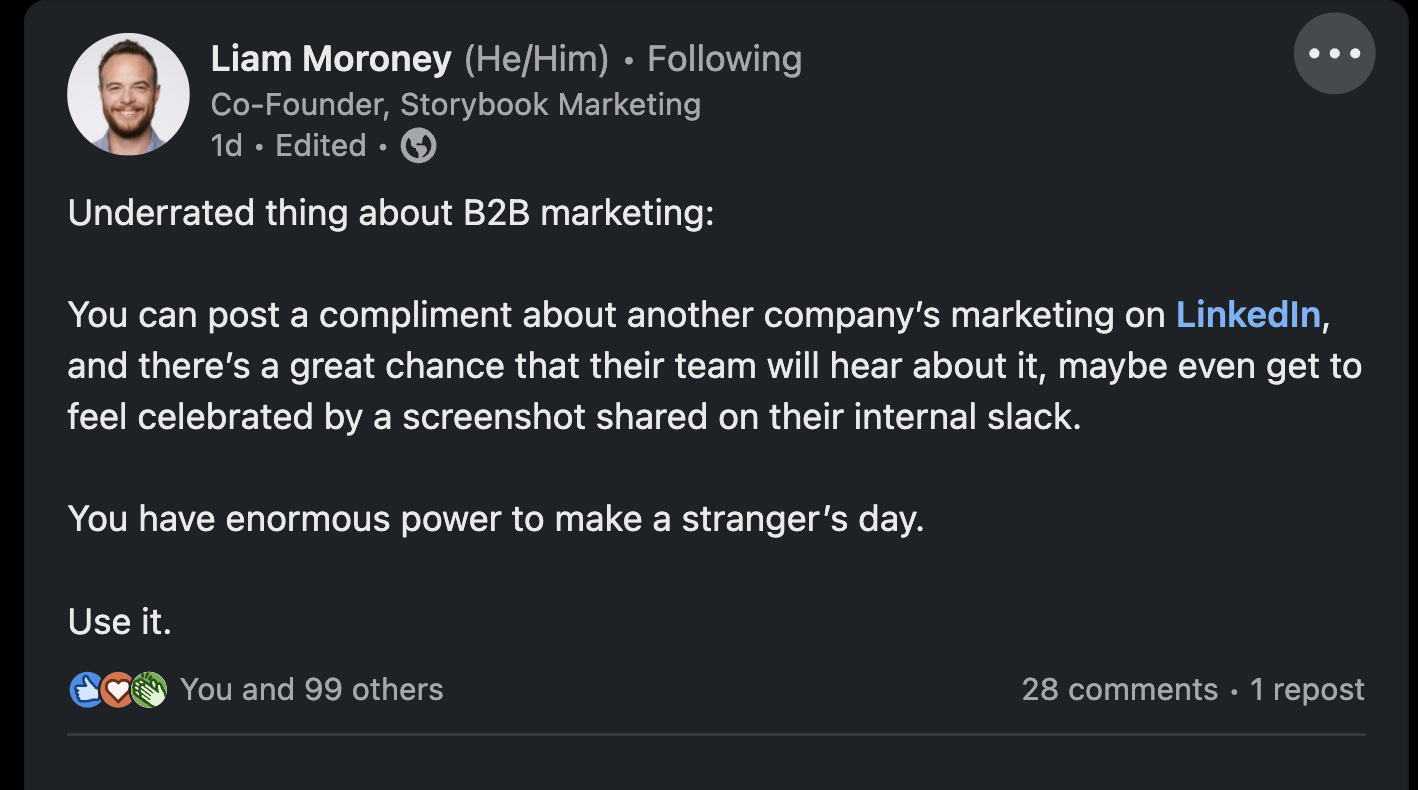
I don’t want to keep hiding my appreciation for people anymore.
From now on, I want to tell people when I care about them. I want to show that their actions or words have made a difference.
And I am starting that right now, in the most public, anxiety-inducing way possible.
The List of People I Want to Thank
In the past year, I’ve been surrounded by incredible people who showed me kindness, empathy, and support when I needed it. This list is by no means exhaustive, but at least it’s a start.
I would like to thank:
- Liam McMahon, for helping me find the courage to hire help and dream of better clients.
- Lindsay Wolf, for validating my idea to start a business and for approving my business loan.
- Rand Fishkin, for serving as my role model and main inspiration over the past year. I appreciate that you always take the time to answer my questions, promote my work, and encourage me.
- Amanda Natividad, for being the first marketer whose writing made me laugh out loud. I still tell people that I want to be like you “when I grow up” as a marketer.
- Jonathan Gandolf, for laughing at my silly SEO pentagram joke and deciding that I would make a good podcast guest.
- Sarah Stockdale, for creating Gather and giving me a community of marketers who encourage me to take chances and stop being so afraid.
- David Wahl, for wonderful Mastodon conversations about marketing, passion, and James Joyce’s weird books.
- Elizabeth Tai, for supporting my marketing rants and wishing that you were the first subscriber to this newsletter.
- Ewen Bell, for sending me a message so sweet it made me cry.
- John Mueller, for supporting my thoughts on content and encouraging me to keep putting myself out there.
- Devin Bramhall, for being my first marketing friend and making me look forward to the day I finally move to Brooklyn full-time.
- Matthew Mullins, for asking me about Ukraine and my family while on our first discovery call.
- Baxter Lanius, for being my first independent client and never questioning my lack of experience.
- Lauren Weisheit, for supporting me every step of the way, even though we no longer work together or even in the same industry.
- Mohammed Aziz, for getting me into marketing by believing that I had a talent for it that I didn’t know myself.
- David Riggs, for convincing me that I was more than “just a writer”.
- Nathan Smith, for keeping me sane when dealing with unreasonable client expectations and for making me cry with your goodbye message.
- Hannah Permell, for never accepting my impostor syndrome and for allowing me break down on calls.
- Danielle Messler, for laughing with me about corgis and encouraging me to speak about topics that I care about the most.
- Aparna Allam, for entertaining my constant requests for quotes and actually being interested in my SparkToro fangirling.
- Justin Reed, for jumping in to help me even though you had no idea who I was.
- Jason Bradwell and Marc Thomas, for creating Karaoke and setting up an entire mastermind session just to help me get out of a creative rut.
- Jason Westgeest, for checking in about a question I casually asked and wondering about my favorite Ukrainian recipes.
- Natalie Marcotullio, for telling me that our chat inspired one of your recent posts, and for subscribing to my newsletter twice.
- Ginny Holden, for helping me define what I’m good at and encouraging me to finally turn my website into something that I could be proud of.
- Carina Rampelt, for helping me prepare my workshop and geeking out with me about good content.
- Tiffany DaSilva, for caring so much that you worried about me while celebrating Christmas. You are one of the kindest humans I have met in my entire life.
- Amanda Scheldt, for spending our entire first call ranting about all the fears and frustrations that we felt as January was off to a rougher start than we hoped.
- Tem, for geeking out about Notion with me and inviting me to see their brand new Manhattan office.
- Thomas Frank, for being the first hero of mine that I met in real life and not making it awkward when I launched into a “I’ve been watching your videos since high school” speech.
- My team (Kate Collins, Jen Phillips April, Jeffrey Lupo, Kaashif Hajee, Yeva Stepanova, and A.H.) for being incredible writers, supportive coworkers, and the loveliest bunch of people I’ve ever met.
Top 3 Reading Recommendations
- DevEx Principles: Minimize switching contexts - great explainer on how to build products & market to developers.
- When should your brand go dark on social media? - the world is messy, and sometimes it’s best for us to not post about our campaigns.
- Macroeconomic Changes Have Made It Impossible for Me to Want to Pay You - a funny, satirical take on recent layoffs in tech.
Audience Research Corner
CMOs these days seem to be more concerned about cybersecurity than they were during the holidays.
I wonder how they were protecting their data between New Year’s and January 19 :)
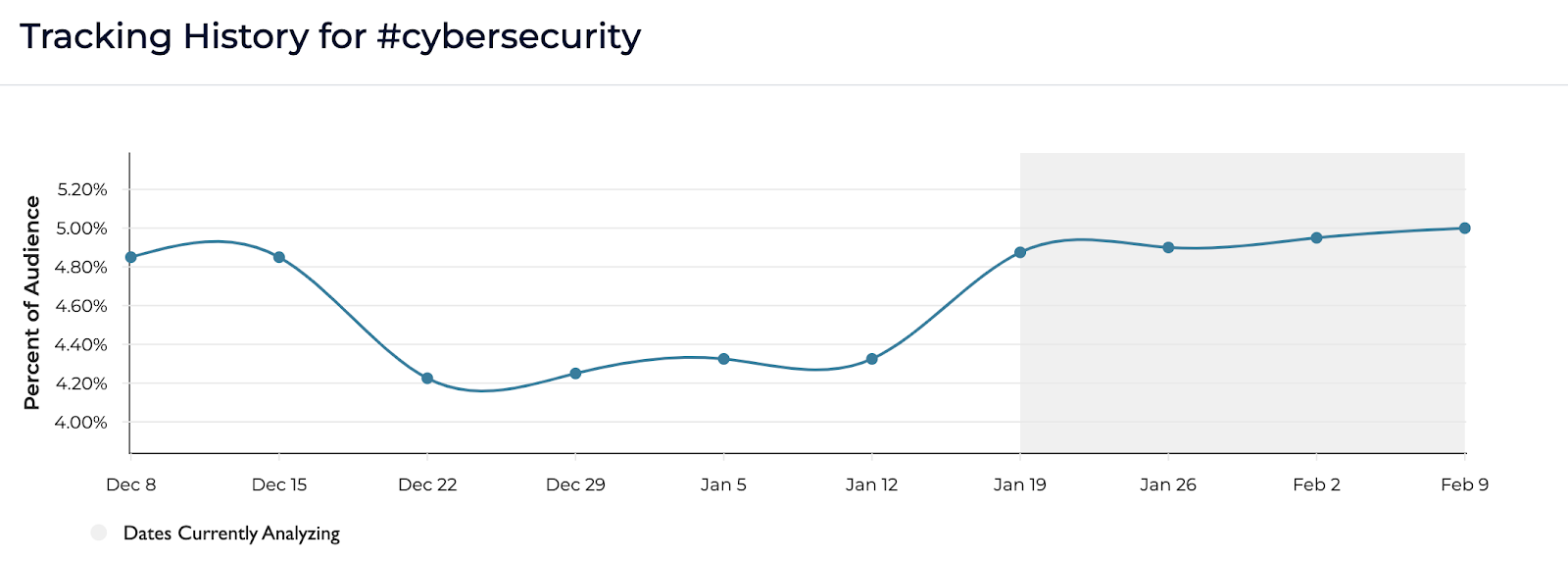
Musical Minute
I cried like a baby when “Wish I Knew You” by The Revivalists came on the other night. This song reminded me of college and awakened emotions that I hadn’t felt in years.




